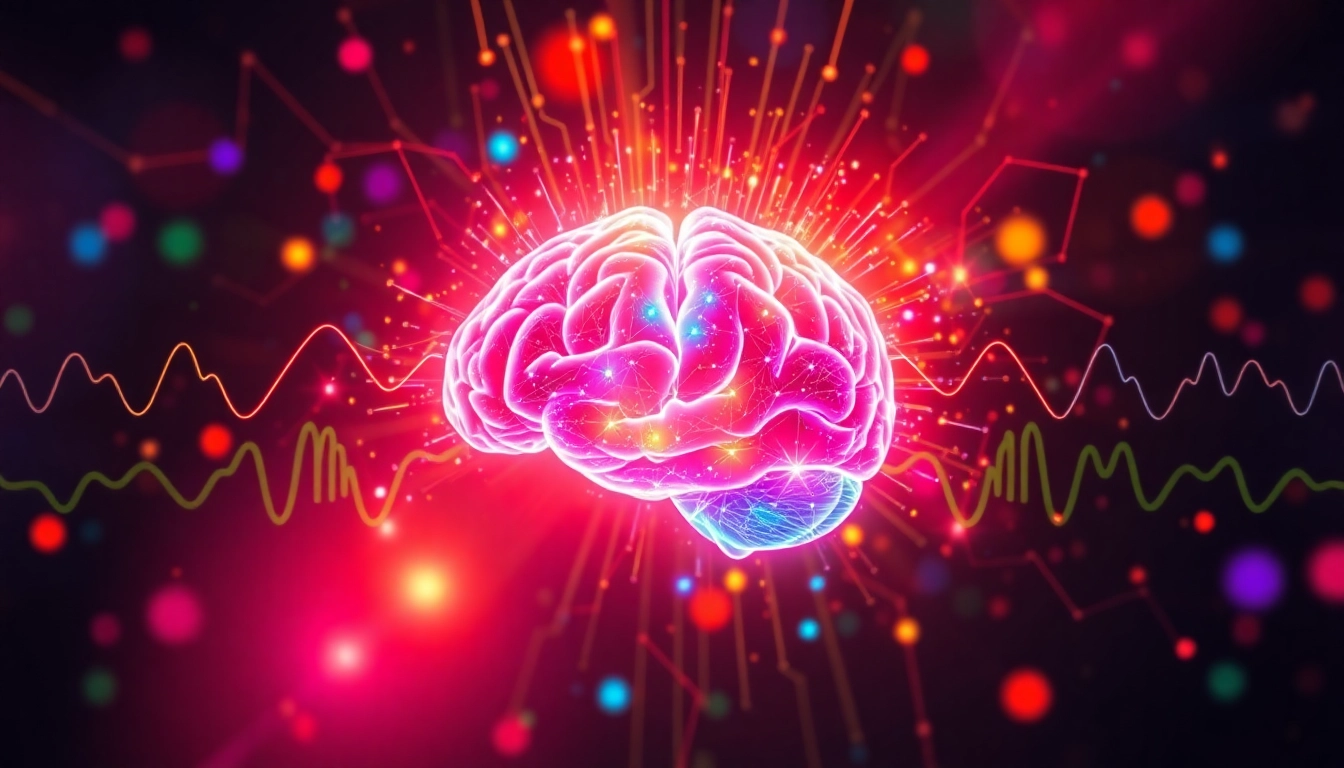Understanding Anxiety and Its Impact
Anxiety, a sensation that countless individuals experience at some point in their lives, serves as a signal of various physical and psychological issues. It can manifest in numerous forms, often impacting daily life and overall well-being, making effective anxiety treatment dubai a crucial aspect of mental health care in the region.
What is Anxiety?
Anxiety is a normal reaction to stress, defined as a feeling of worry, fear, or apprehension. It can be short-term, as in a response to a specific situation like public speaking, or chronic, affecting one’s quality of life over prolonged periods. Anxiety disorders, characterized by excessive fear or worry, can disrupt daily activities and compel individuals to avoid certain situations. Types of anxiety disorders include Generalized Anxiety Disorder (GAD), Panic Disorder, Social Anxiety Disorder, and Specific Phobias.
Common Symptoms and Signs
Recognizing the symptoms of anxiety is the first step toward effective treatment. Common indicators include:
- Persistent worry or fear
- Restlessness or agitation
- Difficulty concentrating
- Physical symptoms such as an increased heart rate, sweating, or dizziness
- Avoidance of situations that trigger anxiety
- Sleep disturbances
These symptoms can vary significantly in intensity and frequency, leading to varying behavioral consequences, which, when unaddressed, could escalate to more severe anxiety conditions.
How Anxiety Affects Daily Life
Anxiety can significantly hinder daily functioning and quality of life. Individuals may find it challenging to engage in normal activities, such as attending work, socializing, or performing necessary household duties. The emotional toll of anxiety can also strain relationships with family and friends, as impacted individuals might withdraw or become irritable. Furthermore, chronic anxiety has been linked to physical health issues, including cardiovascular disease, gastrointestinal disorders, and a weakened immune system, highlighting the importance of adequate treatment.
Available Treatments for Anxiety in Dubai
Fortunately, a variety of treatment options for anxiety are accessible in Dubai, ranging from therapeutic interventions to medication. Each treatment pathway can be customized to provide the best possible outcomes based on individual circumstances.
Therapeutic Approaches to Manage Anxiety
Psychotherapy remains a cornerstone of anxiety treatment. Cognitive Behavioral Therapy (CBT) ranks among the most widely utilized modalities, focusing on altering destructive thought patterns and developing enhanced coping strategies. Other therapeutic techniques include:
- Mindfulness and Acceptance-Based Therapies: These approaches help patients accept and engage with their thoughts and feelings more effectively.
- Exposure Therapy: Particularly beneficial for phobias and anxiety contributors, this method gradually exposes patients to anxiety-provoking situations in a controlled manner, helping to desensitize them.
- Supportive Therapy: Aimed at providing emotional support and guidance as patients navigate their challenges, this approach creates a strong therapeutic alliance that is vital for recovery.
Engaging with experienced therapists in Dubai can enhance the efficacy of these treatments, guiding patients through the complexities of anxiety.
Medication-Based Anxiety Treatment in Dubai
For some, medication may serve as an essential component of a comprehensive anxiety treatment plan. Antidepressants, particularly Selective Serotonin Reuptake Inhibitors (SSRIs) and Serotonin Norepinephrine Reuptake Inhibitors (SNRIs), are often prescribed as first-line treatments. These medications assist in regulating neurotransmitter levels, which can alleviate anxiety symptoms. Other options include benzodiazepines, which may provide short-term relief, though they are typically prescribed with caution due to the potential for dependency.
It is crucial for individuals to consult healthcare professionals to find a suitable medication plan tailored to their needs, often involving assessments and ongoing evaluations for optimal results.
Holistic and Alternative Treatment Options
In addition to conventional therapies and medication, many individuals explore holistic and alternative approaches to manage anxiety. Some popular options include:
- Yoga and Meditation: Both forms promote relaxation, mindfulness, and peace, considerably contributing to reducing anxiety levels.
- Nutritional and Lifestyle Changes: Diet and exercise play a fundamental role in mental health. A balanced diet, rich in omega-3 fatty acids and vitamins, combined with regular physical activity, can positively affect anxiety.
- Herbal Remedies: Natural supplements like chamomile, lavender, and valerian root are often used in addition to standard treatments. Though they’re widely regarded as safe, it’s recommended to discuss the use of such remedies with a healthcare provider to avoid interactions with medications.
Integrating holistic methods into a broader treatment plan can significantly enhance recovery and promote resilience against anxiety triggers.
Choosing the Right Anxiety Treatment in Dubai
When embarking on the journey to find effective anxiety treatment, various factors must be considered to ensure the best possible outcomes.
Factors to Consider in Treatment Selection
When exploring options for anxiety treatment, consider the following:
- The severity and type of anxiety being experienced.
- Personal preferences and lifestyle considerations related to therapy and medication.
- The qualifications and specialties of potential therapists or psychiatrists.
- Available support systems, including family and friends, which can play an integral role in healing.
Combining these insights can assist in making informed decisions that align with personal goals for healing and recovery.
Professional Support: Finding a Qualified Therapist
Searching for the right therapist or healthcare provider is essential for establishing a successful treatment plan. Look for professionals with accredited qualifications and specialization in anxiety-related disorders. Recommendations from trusted sources and online reviews can provide insight into the best practitioners. Furthermore, conducting initial consultations can help gauge compatibility with the therapist, as a solid therapeutic relationship significantly influences treatment outcomes.
Assessing Your Treatment Goals
Before beginning treatment, it is crucial to outline clear, achievable goals. Effective treatment may focus on reducing the severity and frequency of anxiety symptoms, improving coping mechanisms, and enhancing overall emotional well-being. Setting specific, measurable objectives can foster motivation and contribute to a sense of accomplishment throughout the recovery journey.
Combining Treatments for Optimal Results
Research supports the notion that a combined approach often yields the best results. Integrating various forms of treatment can address anxiety’s multifaceted nature and lead to lasting improvement.
Integrating Therapy and Medication
For many individuals, combining therapy with medication offers a holistic way to manage anxiety effectively. Medication can help stabilize symptoms, allowing individuals to engage more fully in therapy. As patients progress and learn coping strategies in the therapeutic setting, medications can be adjusted accordingly based on feedback, enhancing overall treatment efficacy.
Group Therapy Benefits
Group therapy provides a valuable context for individuals dealing with anxiety. It offers a supportive environment where participants can share experiences, learn from one another, and develop a sense of community. Facilitated by trained professionals, group therapy can foster connection, reduce feelings of isolation, and facilitate new coping strategies drawn from shared experiences and insights.
Self-Care Techniques to Supplement Treatment
Incorporating self-care behaviors into one’s routine can significantly bolster treatment efforts. Effective self-care strategies include the following:
- Establishing a routine: Regular sleeping hours and structured daily activities can provide a sense of control.
- Engaging in physical activity: Consistent exercise can release endorphins, promoting mood enhancement and reducing anxiety.
- Practicing relaxation techniques: Deep breathing, progressive muscle relaxation, and guided imagery can all aid anxiety reduction.
Adopting a comprehensive self-care regimen can effectively promote resilience against anxiety, enhancing overall treatment outcomes.
Success Stories and Testimonials
Real-life testimonials serve as motivational accounts, illustrating the transformative power of effective anxiety treatment in enabling individuals to reclaim their lives.
Real-Life Experiences of Effective Anxiety Treatment Dubai
Many individuals struggling with anxiety have successfully navigated their recovery paths through various treatment options available in Dubai. Stories of resilience highlight how therapy and supportive networks enable patients to regain control over their lives and foster healthier coping mechanisms.
How Treatment Changed Lives
Stories of change underscore the significance of seeking help. Patients often share how they have learned to manage their symptoms effectively, establish fulfilling relationships, and pursue personal and professional goals with renewed confidence. Such narratives provide hope, illustrating that recovery is achievable with the right support and treatment.
The Importance of Support Networks
Support networks are pivotal in an individual’s recovery journey. Whether through family members, friends, or support groups, having a reliable support system fosters encouragement and accountability. These networks not only provide emotional sustenance but also offer practical assistance in coping with challenging moments, thus enhancing the overall effectiveness of treatment.




